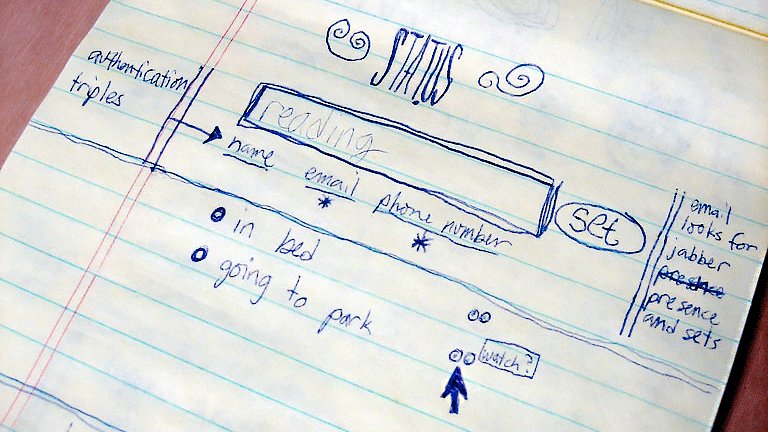Sage career advice from Baltasar Gracián

One of the books I read on repeat is variously translated as The Pocket Mirror and Art of Prudence or The Art of Worldly Wisdom. I prefer the latter title, but the best translation I’ve found is the Penguin edition with the former.
It’s author, Baltasar Gracián, was a 17th-century Jesuit priest whose aphorisms give advice on being successful in the world without losing, as it were, your soul.
What I like about the 300 pieces of advice is that, four centuries later, it still feels fresh and contemporary. Although there are parts that pertain to court life, these are easily transposed onto any workplace. After all, politics, intrigue, and currying favour are fairly universal human experiences.
There are three aphorisms in particular coming almost one after another that constitute wise career advice for the ages. The first uses the metaphor of appetite to talk about ambition, the second discusses fitting your job to your temperament, and the third focuses on finding the right time to move between jobs or positions. I’ve used the title for each aphorism given in my edition as the subtitles below.
A stomach for great mouthfuls of good fortune
Maxim 102 delves into what I’ve discussed elsewhere as increasing your serendipity surface:
In the body of prudence, not the least important part is a large stomach, for great ability is made up of great parts. A stroke of good luck doesn’t hold back someone who deserves something more substantial: what satiates one person, leaves another hungry. There are many who waste a choice morsel because they don’t have the appetite for it, being neither accustomed nor born to elevated positions. Their dealings turn sour, and the heady perfume of unmerited honour makes them lose their heads. They run real risks in high places and are full of themselves because they have no place for luck. Great men should let it be seen that they still have room for even greater things and should carefully shun anything that might indicate they are narrow-hearted.
In addition to increasing (or ‘rewilding‘) our serendipity surface, this maxim also deals with capacity. We often talk about increasing organisational capacity, bu we rarely talk about increasing the capacity of individuals to deal with situations, events, or other people.
I’m not sure if Gracián self-identified as a Stoic, but he’s certainly included in the tradition by thinkers who come later. What I like about Stoicism is the balance that Donald Robertson so expertly teases out in How to Think Like a Roman Emperor between ‘indifference’ to events and our responsibility to society to use our abilities (and capacity) for good.
Understand what different jobs entail
Maxim 104 contains some of my favourite lines of Gracián’s writing. I’ve highlighted them in bold for the avoidance of doubt:
They are all different and you need great knowledge and observation here. Some require courage, others subtlety. Those that depend on integrity are easier to handle, those on artifice, harder. With the right disposition, nothing else is needed for the former; but all the care and vigilance in the world are not enough for the latter. To govern people is a demanding job, and fools and madmen more so. Twice the wit is needed to deal with someone with non. A job that demands complete dedication, has fixed hours and is repetitive is intolerable; better is one which is free from boredom and which combines variety and importance, because change is refreshing. The best are those where dependency on others is minimal. The worst, one where you are held to account, both in this world and the next.
What I find so useful about this is the healthy relationship that is encouraged between the individual and their work. Instead of fitting oneself into the confines of a job description, or the role of a cog in a machine, Gracián instead encourages us to flourish as human beings.
Gracián wouldn’t have used the term, but this reminds me of the importance of avoiding what the late Dave Graeber called ‘bullshit jobs‘. Not only are these jobs pointless, but they’re psychologically destructive. There are some jobs that are entirely pointless, Graeber contends, and others which contain pointless parts. I think Gracián would have appreciated Graeber’s typology of pointless jobs:
- Flunkies, who serve to make their superiors feel important, e.g., receptionists, administrative assistants, door attendants, makers of websites whose sites neglect ease of use and speed for looks;
- Goons, who act to harm or deceive others on behalf of their employer, e.g., lobbyists, corporate lawyers, telemarketers, public relations specialists, community managers;
- Duct tapers, who temporarily fix problems that could be fixed permanently, e.g., programmers repairing bloated code, airline desk staff who calm passengers whose bags do not arrive;
- Box tickers, who create the appearance that something useful is being done when it is not, e.g., survey administrators, in-house magazine journalists, corporate compliance officers, quality service managers;
- Taskmasters, who manage—or create extra work for—those who do not need it, e.g., middle management, leadership professionals
Given the prevalence of the above in our society (Graeber suggests that it’s more than half of all jobs) it’s worth using Gracián’s encouragement to focus on virtue and variety in our careers as a north star.
Don’t hang around to be a setting sun
Maxim 110 gives decisive advice for those who are unsure as to whether to stick or twist in their current job:
The sensible person’s maxim: abandon things before they abandon you. Know how to turn an ending into a triumph. Sometimes the sun itself, whilst still shining brilliantly, goes behind a cloud so nobody can see it setting, leaving people in suspense over whether it has or not. To avoid being slighted, avoid being seen to decline. Don’t wait until everything turns their back on you, burying you alive to regret but dead to esteem. Someone sharp retires a racehorse at the right time, not waiting until everyone laughs when it falls in mid-race. Let beauty astutely shatter her mirror when the time is right, not impatiently and too late when she see her own illusions shatter in it.
I’ve used this advice a couple of times in my career so far and it’s worked out well both times. Sticking around because of inertia or ‘golden handcuffs‘ is never a good reason to stay in a position or with an organisation. Although it can be a bit scary to make the change, I’ve found another quotation by the author John Burroughs inspirational: “Leap, and the net will appear.”
Making allowances for context and cultural norms at his period in history, I find this sage career advice from Gracián. For those who haven’t read his work, I’d highly recommend reading these three in the context of the other 297 pieces of advice he dispenses in his book. If you can, get the Penguin edition, you’ll thank me for it!

